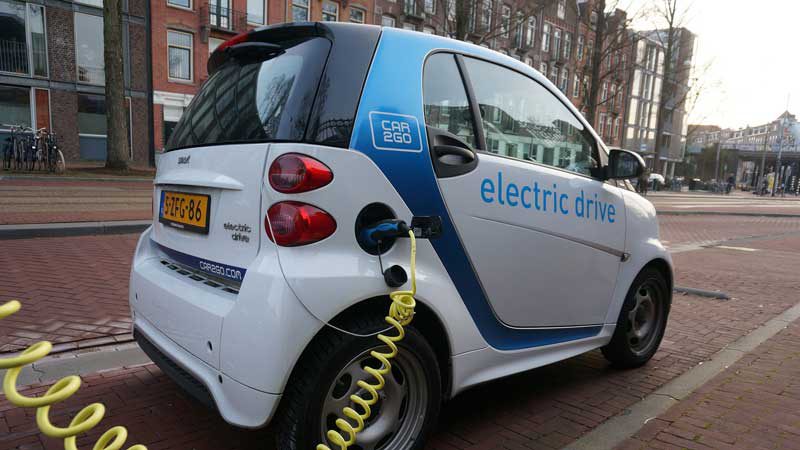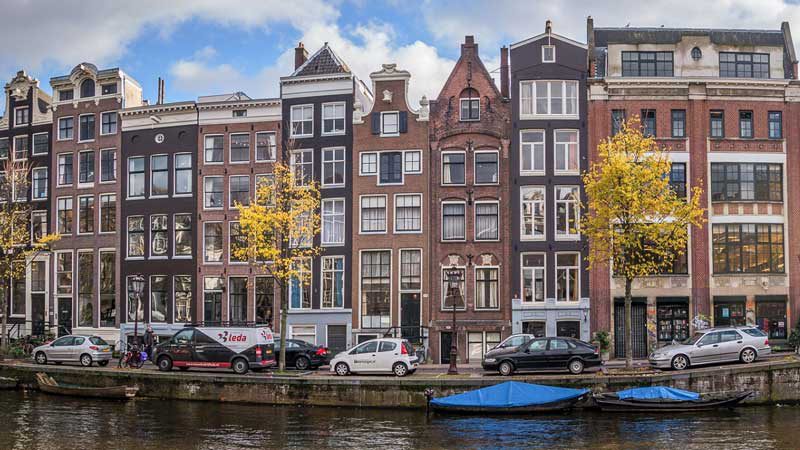The Dutch capital of Amsterdam has pledged to ban all petrol and diesel cars and motorcycles from 2030 as part of a plan to improve the city’s air quality.
The plan, announced Thursday, will start next year with a ban of diesel cars over 15 years of age, as the city works to improve its terrible track record for air quality, which it has gained despite the Dutch people’s love of bicycles.
The city’s “Clean Air Action” plan will then ban internal combustion engine (ICE) buses and coaches from entering the city centre from 2022, followed by a ban on petrol or diesel pleasure boats as well as motorbikes and mopeds from 2025.
“Pollution often is a silent killer and is one of the greatest health hazards in Amsterdam,” said Sharon Dijksma, the city’s alderman responsible for traffic, transport, water and air quality.
The total ban is ramps up efforts already underway to reduce the effect of polluting vehicles on air quality.
Like many other European cities, Amsterdam already has a “Low Emissions Zone” (LEZ) that restricts the movement of high-emission diesel vans and lorries, buses and coaches, and mopeds in the city centre.

In October 2018, Dijksma told an electric vehicle conference in Japan that EVs would play a key role in reaching the city’s goal of becoming a leader in zero emissions.
“My mission is to make Amsterdam the leading zero-emission capital of the world by 2025 and electric transport is one of the answers to this challenge,” she said.
But there is a concern that the demand for electric vehicles already outweighs supply, a fact that was acknowledged by Dijksma at the Japan conference.
While the city says it will encourage its residents to make the switch to EVs by offering a free charging point for drivers purchasing electric vehicles, Netherlands automotive industry lobby group Rai Association also expressed concern for both availability and affordability for electric vehicles by the city’s residents.
“Many tens of thousands of families who have no money for an electric car will soon be left out in the cold. That makes Amsterdam a city of the rich,” a spokesperson from the association said according to The Guardian.
“In 2030, about one-third of the cars will be electric, we expect. But there will also be a lot of people who won’t be able to afford that by then.”
According to Austrian transport organisation VCÖ, the Netherlands has the second highest market share of electric vehicles in Europe, with plug-in electric car sales accounting for 5.4 per cent of all vehicle sales in 2018.

Bridie Schmidt is associate editor for The Driven, sister site of Renew Economy. She has been writing about electric vehicles since 2018, and has a keen interest in the role that zero-emissions transport has to play in sustainability. She has participated in podcasts such as Download This Show with Marc Fennell and Shirtloads of Science with Karl Kruszelnicki and is co-organiser of the Northern Rivers Electric Vehicle Forum. Bridie also owns a Tesla Model Y and has it available for hire on evee.com.au.

